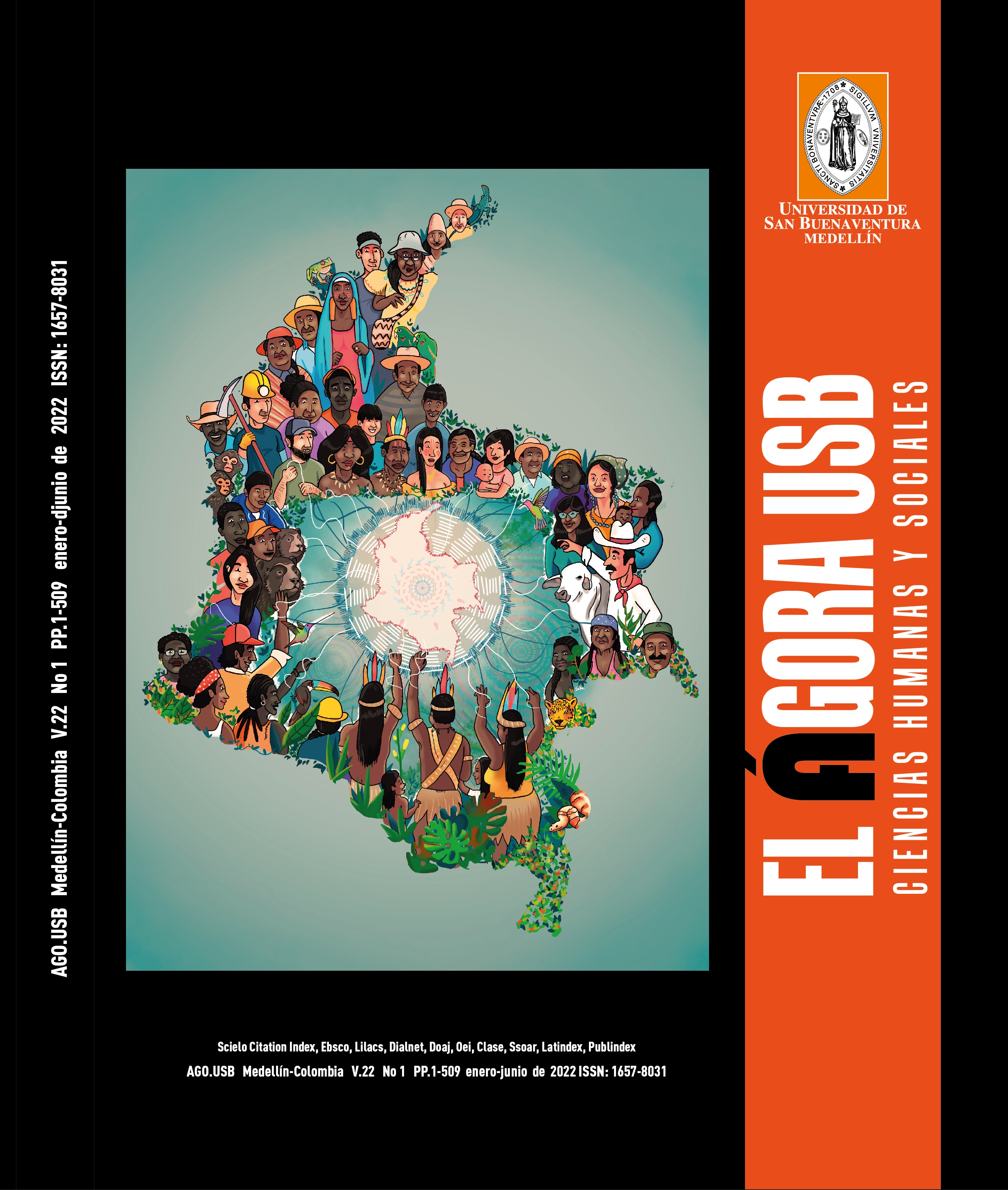The authors are also adhere to the creative commons license 4.0 (https://creativecommons.org/licenses/by-nc-nd/4.0/deed.es)
Attribution - NonCommercial - SinDerivar 4.0 International (CC BY - NC - ND 4.0)
Abstract
In the professional profile of educational programs of all disciplines, it is pointed out that the competences of undergraduate students will have to reflect their knowledge, abilities, and skills to operate in a more globally interconnected world. The Social and Emotional competences, as a fundamental part of the being and of the social memory give undergraduate students a starting point for their formation, and at the same time, influence the constitution of Intercultural intelligence that will allow the future professional to perform in a global context, as a fundamental part of the integral profile.
Keywords:
References
Aránguiz, H. (2014). Relaciones entre construcción de ciudadanía, perfiles de empleabilidad, enseñanza y aprendizaje por competencias transversales. Universidad de Barcelona, Barcelona.
Bierman, K. L., Domitrovich, C. E., Nix, R. L., Gest, S. D., Welsh, J. A., Greenberg, M. T., Gill, S. (2008). Promoting academic and social-emotional school readiness: The Head Start REDI program. Child Development, 79(6), 1802–1817. https://doi.org/10.1111/j.1467-8624.2008.01227.x
Cadavid, G., & Urrego, M. I. (2006). Construcción Académica ITM. Serie Cuadernos de la Escuela. Editorial ITM, Año 7 No. 10, 2ª ed. Corregida. Medellín. ISSN 0124-1281
CEPAL, N. (2017). Agenda 2030 y los Objetivos de Desarrollo Sostenible: Una Oportunidad para América Latina y El Caribe. Recuperado de: http://repositorio.cepal.org/bitstream/handle/11362/40155/S1700334_es.pdf?sequence=10&isAllowed=y
Collaborative for Academic, Social, and Emotional Learning (CASEL) (2018). Competencias del aprendizaje social y emocional (SEL). Disponible en: https://casel.org/wp-content/uploads/2019/12/CASEL-wheel-competencies-Spanish.pdf
Deardorff, D. K. (2006). Identification and assessment of intercultural competence as a student outcome of internationalization. Journal of Studies in International Education, 10(3), 241–266. https://doi.org/10.1177/1028315306287002.
Domitrovich, C. E., Cortes, R. C., & Greenberg, M. T. (2007). Improving young children's social and emotional competence: A randomized trial of the preschool “PATHS” curriculum. Journal of Primary Prevention, 28(2), 67–91. https://doi.org/10.1007/s10935-007-0081-0.
Dubrovsky, V., Kiesler, S. y Sethna, B. (1991). The equalization phenomenon: Status effects in computer-mediated and face-to-face decision making groups. Human-Computer Interaction, 6,119-146.
Elias, M. J. (2003). Academic and social-emotional learning. Educational practices series (11th ed.). Geneva: Unesco - International Bureau of Education.
Gadamer, H. (1999). Verdad y Método I (A. Aparicio y R. de Agapito, Trads., pp. 31-74). Salamanca, España: Sígueme.
Greenberg, M. T., Weissberg, R. P., O’Brien, M. U., Zins, J. E., Fredericks, L., Resnik, H., et al. (2003). Enhancing school-based prevention and youth development through coordinated social, emotional, and academic learning. American Psychologist, 58(6–7), 466. https://doi.org/10.1037/0003-066x.58.6-7.466.
González, J., & Wagenaar, R. (2009). Una introducción a Tuning Educational Structures in Europe. La contribución de las universidades al proceso de Bolonia. Bilbao: Publicaciones de La Universidad de Deusto, 96. Retrieved from http://www.unideusto.org/tuningeu/images/stories/documents/General_Brochure_Spanish_version.pdf
MEN. (2017). Plan Nacional Decenal de Educación 2016-2026: “El camino hacia la calidad y la equidad”. Bogotá D.C., Colombia: Oficina de Comunicaciones Gobierno de Colombia.
Moreno, B., Blanco, L., Aguirre, A., deRivas, S. & Herrero, M. (2014). Habilidades sociales para las nuevas organizaciones. Behavioral Psychology / Psicología Conductual, Vol. 22, Nº 3, 2014, pp. 587-604.
OCDE (2010). Habilidades y competencias del siglo XXI para los aprendices del nuevo milenio en los países de la OCDE.
OECD Publishing. Disponible en www.oecd.org/bookshop.
Orozco, L. (1999). La formación integral: Mito o realidad. Bogotá: Uniandes.
Pérez, C. (2012). Incorporación de las competencias genéricas en los títulos de grado de Ingeniería Industrial y su certificación en el suplemento europeo al título. Tesis de Doctorado No Publicada. Retrieved from http://uvadoc.uva.es/handle/10324/981
Pugh, G., & Lozano, A. (2019). El desarrollo de competencias genéricas en la educación técnica de nivel superior: un estudio de caso. Calidad En La Educación, (50), 143. https://doi.org/10.31619/caledu.n50.725
Quintana, A. & Montgomery, W. (2006). Psicología: Tópicos de actualidad, Lima: UNMSM. Metodología de Investigación Científica Cualitativa (pp.47-84). Lima: UNMSM, Quintana, Montgomery.
Tobón, S. (2013). Formación integral y competencias. Pensamiento complejo, currículo, didáctica y evaluación (4ta. Ed.). Bogotá: ECOE. Descarga de: https://cife.edu.mx/recursos/2019/12/04/formacion-integral-y-competencias-pensamiento-complejo-curriculo-didactica-y-evaluacion/
UNESCO (2006). Directrices de la UNESCO sobre la educación intercultural. Biblioteca digital, UNESDOC. Disponible en: https://unesdoc.unesco.org/ark:/48223/pf0000147878_spa
Vélez, Á., Delgado, L., & Sánchez, W. (2018). Análisis prospectivo de las competencias genéricas Tuning-Alfa en la ciudad de Medellín al 2032. Agora U.S.B., 18(1), 131. https://doi.org/10.21500/16578031.3446
Wang, Y., & Kulich, S. (2015). Does context count? Developing and assessing intercultural competence through an interview- and model-based domestic course design in China. International Journal of Intercultural Relations. Vol. 28. PP. 38-57.




















